US Denounces Sexual Assault Reports Against Iranian Journalist

The US Department of State has condemned reports of sexual assault against Nazila Maroufian, a female Iranian journalist, arrested twice this year for her political views.

The US Department of State has condemned reports of sexual assault against Nazila Maroufian, a female Iranian journalist, arrested twice this year for her political views.
It described the Iranian regime's systematic use of sexual violence with the aim of "instilling fear, shame, and silence" in victims as reprehensible.
The US Department of State, in a post on its Persian-language page on the X social media network on Friday, wrote: "The use of sexual violence by the Iranian authorities further demonstrates the courage of Iranians against such reprehensible actions aimed at intimidating them."
This department emphasized Washington's commitment to continue supporting the fundamental rights and freedoms of the Iranian people and collaborating with allies and partners to hold human rights violators accountable.
Maroufian, a detained journalist in Evin Prison, announced in an audio file released on Thursday that she had been sexually assaulted during her detention. She also stated that she had gone on a hunger strike in protest to the suffering imposed on her and other women by the government.
This journalist, who had recently been released on bail, was rearrested August 30 in a violent manner.
She began a hunger strike in Evin Prison last week, demanding unconditional release and the restoration of her dignity, as well as punishment for the officials who had beaten her during her detention.
However, Mizan News Agency, affiliated with the Iranian judiciary, dismissed Maroufian’s disclosure as a "claim" and stated that she and her lawyer had not registered any complaint in this regard.
The Iranian government routinely denies reports about torture, harassment, or sexual assault on prisoners and has not addressed the disclosure or complaints of women and men in custody in this regard.

An influential conservative in Iran claims that hardliners who are purging others from the political landscape are so few that they couldn't even fill two buses.
Mansur Haqiqatpur, the former deputy chairman of the Iranian parliament's National Security Committee, stated in an interview with Rouydad24 in Tehran, "Despite their small numbers, these ultraconservatives have seized control of all government institutions."
Referring to their widespread influence and their “irresponsible behavior,” Haqiqatpur emphasized that the nation, the media, and politicians should hold the ultraconservatives accountable for their destructive performance.
A few dozen hardliners in parliament and in President Ebrahim Raisi’s administration have increasingly resorted to eliminating others from the government bureaucracy and even universities, accusing some of insufficient “revolutionary” credentials.
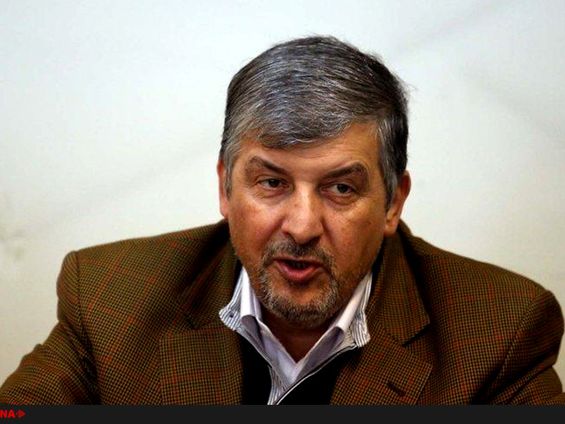
The moderate conservative politician stated, "What we refer to as political purification today has always existed since the 1979 revolution; however, the trend aiming to limit political power to ultraconservatives has gained renewed momentum in recent years."
He suggested that everyone, including the hardliners, should realize that Iran belongs to all Iranians, and political purification will disappoint young Iranians who wish to play an active role in determining the fate of their country. Meanwhile, Haqiqatpur added, "We should not try to eliminate critics. It is unfair to hand over the entire affairs of the state to a group so small that they couldn't fill a couple of buses."
He criticized the government for suspending capable professors from universities and replacing them with non-experts. He reiterated that political purification is poison for the country and lamented that Gen. Hossein Alaei, the former commander of the IRGC naval force, is not allowed to teach at the university due to his reformist tendencies.
Meanwhile, prominent conservative commentator Nasser Imani stated in an interview that the influence of those pretending to be revolutionaries is a cause for concern. He said the rising influence of fake revolutionaries and the isolation of experts in the Iranian academia pose a threat to the country.
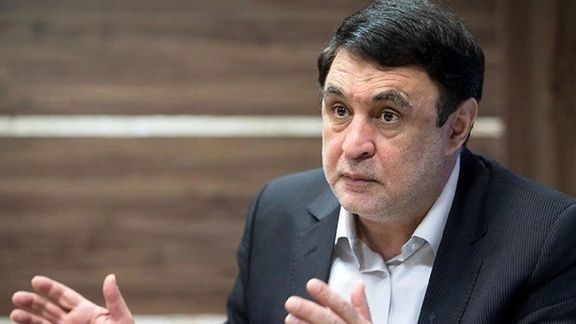
Imani added that the fake revolutionaries claim that anyone other than themselves is not a revolutionary. Khabar Online reported that, according to Imani, a group of individuals who see themselves as super-revolutionaries have infiltrated Iran's executive body and the country's propaganda machine.
However, Imani stated that Iranians' behavior in the upcoming parliamentary elections in March will show whether they will stand against these totalitarian ultraconservatives or tolerate their presence in state institutions. Imani also noted that the ultraconservatives do not attach any significance to public opinion, evident in the behavior of the state television that they control, which ignores people's demands and preferences for more open and balanced media.
Imani encouraged other conservatives to stand against the hardliners. Like Haqiqatpur, Imani confirmed that, compared to the large body of the conservative camp, the ultraconservatives are only a small group of politicians seeking to monopolize political power. He added that true conservatives should shun and isolate this vocal minority.
In another development, Iranian lawmaker Ali Rezaei told the press that Raisi’s ultraconservative government continues to blame others for the problems it has created or failed to solve. Blaming others, including the previous government, for problems, is not acceptable now that the parliament has only nine months left in its term, and the government has been in office for over two years.
Rezaei added that people can hardly believe that the dire economic situation of the country is likely to improve because of the government’s and parliament's performance. "Years ago, the people's problem was how to buy a house or a car. Now, the people's daily concern is how to feed themselves," he said.

As tensions escalate between Armenia and Azerbaijan, Iranian sources on social media have claimed that Tehran has sent a serious warning to Baku not to launch an attack.
One analytical news account on social media, alleged that Iran has cautioned Azerbaijan against any potential aggression in the southern Syunik region of Armenia, through diplomatic contacts and various meetings.
After a long blockade of the Armenian-populated Nagorno Karabakh region inside Azerbaijan, reports in recent days indicated that Baku might be preparing for military action against the enclave and Armenia. Tehran has traditionally opposed any Azerbaijani encroachment on Armenian territory.
The source added, "Azerbaijan has taken actions, in coordination with Israel and Turkey, to formulate Plan B in case of military intervention by Tehran against Baku."
The Islamic Republic of Iran has previously cautioned against any alterations to the political geography of the Caucasus region and the adjustment of international borders. Iran declared that if either side seeks to change the geopolitical landscape of the Caucasus or international borders in the Karabakh region, Iran will set aside its neutrality and respond directly.
Recently, Armenian Prime Minister Nikol Pashinyan issued a warning regarding Azerbaijan's provocative military movements along the border and in the Karabakh region. Pashinyan expressed concerns over the possibility of heightened tensions, urging the international community to take preemptive measures to prevent what he referred to as a new explosion in the Caucasus.
It should be noted that Armenian authorities in Yerevan previously confirmed that the country would host a joint exercise with US forces next week to enhance cooperation in international peacekeeping missions.
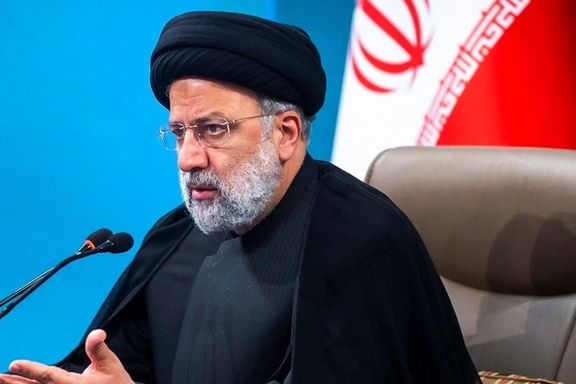
Jomhouri-e Eslami, a conservative Iranian newspaper, has joined the chorus of voices condemning the censorship of critical media outlets by the ruling hardliners.
The newspaper emphasized on Saturday that the relationship between the government and the media should be defined by “mutual respect”, with the aim of upholding the professional standards of media.
"The relationship between the government and critical media should be defined based on mutual respect, so that the media's reflectiveness and the honesty of their reports remain at professional standards," stated Jomhouri-e Eslami in its editorial comments.
This commentary by the daily comes in the wake of the recent suspension of the Entekhab news website by Iranian authorities. The suspension was officially attributed to violations of press laws and decisions made by the Supreme National Security Council. While the move has been reported by news outlets aligned with the Iranian regime, the precise reasons for the suspension have yet to be officially communicated to the website's owner or management.
The suspension of Entekhab, a relatively independent outlet, followed the examination of a video and report titled "Why has Iran's foreign policy become so weak?" The media supervisory body made the decision at a session on Monday. The video, which was published on August 22 on the Entekhab website, contained critical commentary on Iran's current foreign policy under the leadership of President Ebrahim Raisi.
Jomhouri-e Eslami further underscored that constraining and threatening the media is not only the wrong course of action but also undermines the legitimacy of their work. The newspaper emphasized the importance of dynamic and critical media in every society, comparing their necessity to that of a mirror for individuals.
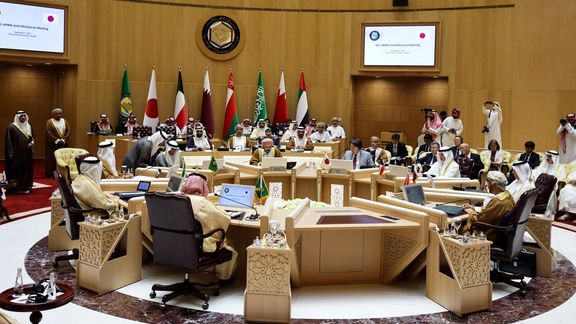
Iran and neighboring Arab countries find themselves increasingly at odds as both sides are engaged in rhetoric that underscores their deep-seated differences.
Amid the persisting rivalries, the Gulf Cooperation Council of the Arab States condemned Iran on Friday for what they called “false” claims that prisoners were being treated badly in Bahrain, a long-time target of Iranian propaganda.
Hours earlier, Iran decried a statement issued at the end of the 157th session of the GCC Ministerial Council in the Saudi capital on Thursday about the “joint ownership” by Saudi Arabia and Kuwait of the maritime Arash/Al-Dorra (Al-Durra) oil and gas field.
The GCC’s foreign ministers cited the principles of the UN Charter on “good neighborliness and non-interference in the internal affairs of states,” calling on officials in Iran “to investigate accuracy and not rely on incorrect information.”
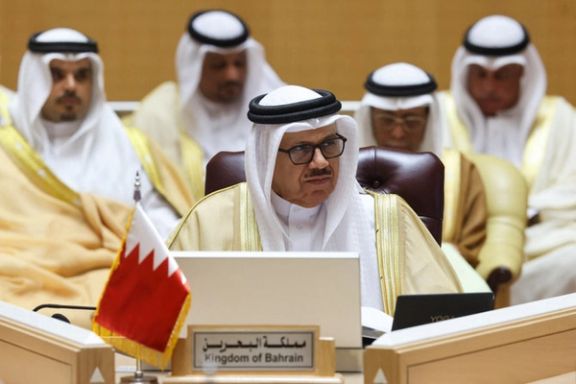
Manama itself had earlier rejected Iran’s foreign ministry spokesman Nasser Kanaani’s claim that “unfavorable” jail conditions in Bahrain had led to a hunger strike by some 800 prisoners. Bahrain’s Ministry of Foreign Affairs said Iran should “be more accurate and not to be misled by false information that harms relations between the two countries.”
A Reuters report quoted Bahrain’s General Directorate of Reform and Rehabilitation as saying that the number of detainees who have reported being on hunger strike had at no time gone beyond 124 and that their complaints were being addressed. The Bahraini body said the hunger strikers are provided with access to medical check-ups daily and none of them have required critical care or hospitalization. “Any claims to the contrary are false,” it said. “They reviewed a number of demands made by some inmates and submitted a detailed report to the relevant authorities,” Bahrain’s foreign ministry said.
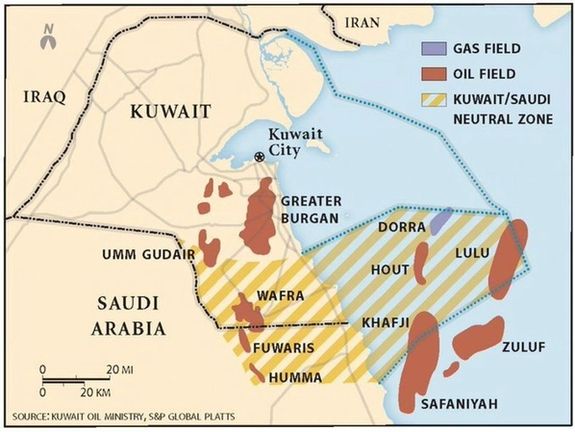
The other issue of contention is a gas and oil field in the northwestern tip of the Persian Gulf straddling the maritime boundaries of Iran, Saudi Arabia and Kuwait. The two Arab states in recent months have been rejecting Iranian claims over the field and planning joint exploration. The GCC Ministerial Council’s rebuke over the issue was part of their comprehensive statement that rejected “any claims that any other party has rights in this field or the submerged area adjacent to the area divided by its designated borders between the Kingdom of Saudi Arabia and the State of Kuwait.”
The joint offshore field -- called Arash in Iran and Durra by Saudi Arabia and Kuwait -- was discovered in 1967 and is estimated to have a total proven reserves of around 310 million barrels of oil and 20 trillion cubic feet of gas. Iran claims any development without its consent breaks international laws, and insists that 40 percent of the field located in its territorial waters. Saudi Arabia and Kuwait insist that Iran has no share in the field and the precise demarcation of the territorial waters can prove that. The disputed maritime field in the Persian Gulf has become a litmus test for the recent détente between Tehran and Riyadh as controversies surrounding it escalate.
“The ownership of the natural resources in the submerged area adjacent to the Saudi-Kuwaiti divided zone, including the entire Al Durra field, is joint ownership between the Kingdom of Saudi Arabia and the State of Kuwait only, and they alone have full rights to exploit the wealth in that area,” the GCC statement said.
In March last year, Kuwait and Saudi Arabia started projects to extract gas from the field. Iran's foreign ministry spokesman at the time, Saeed Khatibzadeh said that as Iran has a share in the field it must be included in any action to operate and develop it. "The Arash/Al-Durra gas field is a joint field between Iran, Kuwait and Saudi Arabia. Parts of it are located in areas between Iran and Kuwait whose water boundaries have not been defined,” he said.
Kanaani said on Friday, “The Persian Gulf littoral states should utilize the resources and subsoil of the Persian Gulf based on goodwill and historical rights in line with the common interests of the nations.”
He also dismissed the GCC claims about the three Iranian islands of Abu Musa, the Greater Tunb, and the Lesser Tunb in the Persian Gulf, describing them as an “eternal and integral” part of the Iranian territory. He said any claim about their ownership have no “political or legal value.”
“The Islamic Republic of Iran has repeatedly emphasized its territorial integrity and sovereignty over the three Iranian islands based on accepted principles and rules of international law,” the regime’s spokesman said.
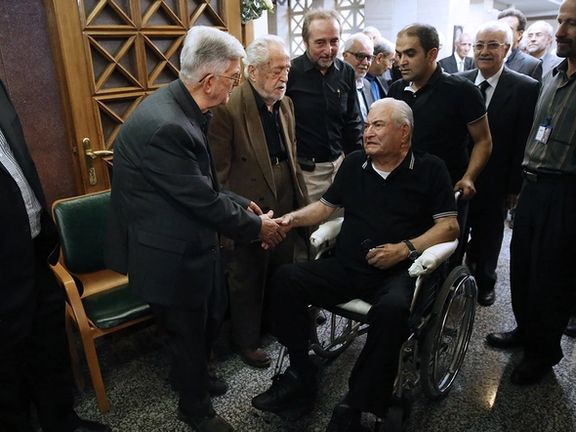
A US federal court has ruled that Iran should pay nearly $20m in damages to the family of an Iranian politician illegally imprisoned and tortured for four decades.
The ruling in favor of the three children of Abbas Amir-Entezam was announced by Herischi and Associates, a Washington-based law firm that represented them in a US federal court in the District of Columbia.
The law firm sued the Islamic Republic and the Revolutionary Guards in July 2019 on behalf of Amir-Entezam’s children -- Ardeshir, Anoush, and Elham – who were 2, 6, and 9 at the time of his imprisonment.
Herischi and associates have also represented the families of ten crew members of Sanchi oil tanker, family of Omar “Chicho" Mahmoudzadeh, a US citizen who was killed in an Iranian ballistic missile and drone attack in Iraq, the families of victims of the Ukrainian flight PS752 which was shot down by Iran’s air defenses on January 8, 2020, shortly after it took off from Imam Khomeini Airport, Tehran, and US-based activist Masih Alinejad.
The plaintiffs who never saw their father again were awarded $3.25m in compensatory damages and $3.25m in punitive damages for a total of $6.5m each. Amir-Entezam passed away in Tehran in July 2018 at the age of 86. The fine is to be collected from Iranian funds in the US allocated to provide compensation to American victims of international terrorism.
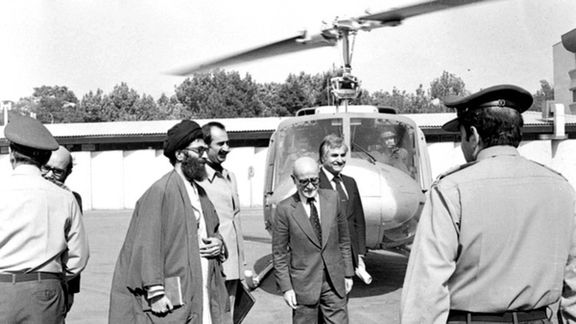
Amir-Entezam was a France and US-educated civil engineer was appointed as deputy prime minister and government spokesman in the interim cabinet formed by Mehdi Bazargan immediately after the Islamic Revolution of 1979. He was sent to Sweden a few months later as ambassador when some political groups objected to his qualifications.
Amir-Entezam was summoned from Sweden and was arrested upon his arrival at Tehran’s Mehrabad Airport in December 1979, soon after revolutionary students took over the US embassy in Tehran and was later charged with spying for the United States based on embassy documents the students had seized.
These documents were minutes of the meetings between Amir-Entezam and the US ambassador and other diplomats in Tehran when he was deputy prime minister.
Amir-Entezam who was one of the first political prisoners, and the longest-held, in the Islamic Republic, always insisted the charges of espionage and said these had held routine diplomatic meetings.
He also alleged that he had been a victim of the prevalent anti-American atmosphere in the country at the time, created by the Soviet Union and the Toudeh party in Iran which upheld Soviet interests.
The former official and diplomat was reportedly held in solitary confinement for over 550 days without access to lawyers during which time he was subjected to many tortures. He was subsequently sentenced to death by a revolutionary Court.
The death sentence was later commuted to life imprisonment with Bazargan’s help. It took seventeen years before Amir-Entezam was allowed to leave the prison and live in his own house, under constant supervision.
Even his limited freedom did not take long, and he was sent back to prison three months later in 1998 after criticizing Assadollah Lajevardi, the warden of the Evin Prison where he had been held, in an interview with the Voice of America, and calling him “an executioner”.
Amir-Entezam was released and sent back to prison twice more after that for objecting to the principle of a ‘Supreme Leader’ being the absolute ruler of the country and proposing a referendum on the Constitution in his interviews and writings. In 2003 authorities decided to release him from prison due to serious health issues but he was never allowed to leave the country.
Some Iranians have criticized the ruling and similar cases when US courts awarded monetary judgments to plaintiffs to be paid from Iran’s funds in the United States. They argue that these funds belong to the Iranian people and should be returned once the Islamic Republic ceases to exist.






